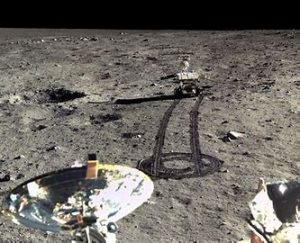In the ongoing race for space dominance, China has achieved a significant diplomatic victory by securing support from Egypt for its lunar exploration project. The China National Space Administration (CNSA) signed a memorandum of understanding with the Egyptian Space Agency, solidifying their cooperation on the International Lunar Research Station (ILRS), a Chinese-backed initiative slated to commence operations around 2030.

This milestone builds upon the recent collaboration between China and Egypt, where a Chinese rocket successfully launched an Egyptian satellite into orbit from a launch center in the Gobi Desert earlier in the week. Kong Dejun, the head of the international economic cooperation department at the Ministry of Commerce, emphasized that this launch embodies the pursuit of “a shared future for mankind” and underscores China’s commitment to the principles of extensive consultation, joint contribution, and shared benefits.
The competition for influence in space has heightened tensions between Beijing and Washington, both vying for allies in their respective lunar exploration plans. The agreement between China and Egypt emerges just a week after the United States achieved its diplomatic victory by securing Angola’s support for the Artemis Accords, a NASA-backed initiative aiming to establish principles for exploration on the moon and beyond.
China had previously announced its intention to collaborate with Russia on the ILRS in 2021 and has been actively seeking support from other nations. However, its success has been comparatively modest when contrasted with the United States. The Artemis Accords boast signatories not only from traditional U.S. allies like Japan and the UK but also include China’s fellow BRICS members, Brazil and India.
While only a handful of countries have committed to supporting the ILRS, China is steadily expanding its network. In August, it signed a cooperation agreement with South Africa, and in October, similar accords were reached with Azerbaijan, Belarus, and Pakistan. This growing list of partnerships underscores China’s strategic efforts to broaden its international collaboration in lunar exploration, positioning itself as a key player in the evolving landscape of space exploration and research. As the new space race continues to unfold, these diplomatic maneuvers signify crucial steps in shaping the global narrative of lunar exploration and influence.
